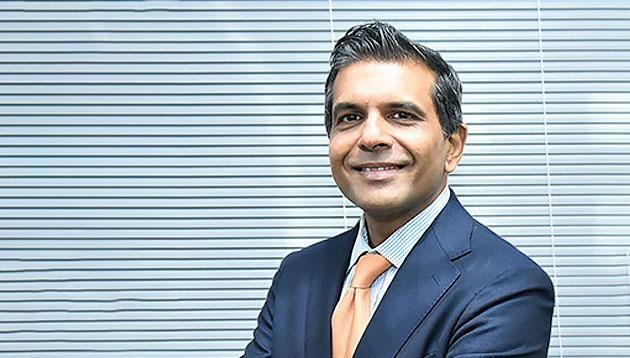



Staying relevant: Can PR professionals dodge the axe during a crisis?
share on
Layoffs have been rampant in recent weeks. Companies such as Klook, Grab, GoJek, One Championship all made headlines for laying off its staff. Meanwhile, PR firms are not spared either. In June, global PR firm Edelman said it was laying off 7% of its global workforce and implementing salary reductions from 5% to 20%.
With the economy in a whirlwind situation, and companies struggling to stay afloat, the role of PR seems more important than ever. For one, PR professionals are now the go to for almost any and all queries from new business acquisitions, to marketing executions and corporate governance conversations. They are on the front line managing a company’s reputation during layoffs and cost cuts, and behind the scenes keeping a steady flow of internal communications to calm anxious minds of employees.
It can be said that during times like these is when budget conscious PR professionals shine in the most effective and resourceful ways. Three years ago when Marketing held its PR Asia conference, panelists at the conference were of the view that while PR is not going to get itself into the boardroom anytime soon, it will definitely make an impact on C-suite. We check in with industry veterans across Singapore and Malaysia on how they are ensuring that their roles are valued amidst the slew of crisis’ faced in 2020, and steps they can proactively take to dodge the axe.
Vijayaratnam Tharumartnam, director, group corporate communications, PROTON

Russian playwright Anton Chekov said, "Any idiot can face a crisis. It’s the day-to-day living that wears you out!” The PR and corporate communications function while perhaps having had an ignoble start, has slowly worked its way from backroom to boardroom. Over the last two decades, consumers have transitioned from being passive receivers to a level of activism that was hitherto unimaginable. Corporations can no longer play it fast and loose with their communications as the new media environment is extremely transparent. It is exactly in this time of crisis, that the PR function becomes indispensable to business.
I personally believe that this will prove to be a time of great opportunity for professionals because they will be able to demonstrate true value in reputational stewardship. Of course, it’s also in times like this that we can separate the wheat from the chaff. I think some culling will be a good thing. It is necessary for the industry to grow and flourish. There are far too many people who think they do PR, and not enough that actually can.
I think learning how to operate in the virtual environment has been quite challenging for me personally during this time. The very sanitised and synthetic space of Teams or Zoom doesn’t allow for the level of robust discussion that I am usually accustomed to. As someone who is very much about face-to-face communications, I have had to learn to drive my point across without "personal gravitas". This yields some benefits though. It forces you to be inscrutable with your powerpoint or paper because that’s your only tool to win over an argument. I dare say that my team on the other hand, was quite happy not to have me in-their-faces so much.
Corporate communications is the voice and conscience of the company. We play the boundary spanner role which is critical to building trust and reputation. It’s our function to try and give clarity to audiences but even more importantly, we must help guide management by telling them what people really think about them. For this to happen, corporate communications must be embedded with the business. Not having a "seat at the table" is no longer an option. The communications team must be able to immerse itself in all of the companies issues and its possible ramifications. By doing this, the team instantly become core to the success of any business.
Deepa Balji, marketing, communications and CSR, Asia Pacific, S4 Capital

There is value to communications/PR when it’s done right. The first value of PR/Communications is in shortening the sales funnel, through brand awareness and showcasing capabilities within the business. I am in B2B comms so being top-of-mind recall for the clients we work with is important. The path to this is to work closely with the growth teams. The second value is to align with the CFO. CFOs need to stand up in front of investors and show business growth and strength. Good publicity shores up confidence with investors, clients and consumers. It’s a win-win situation all round. Thirdly, the value of internal communications. Positive publicity attracts top talent. In addition, employees who have a positive experience working with us become brand ambassadors. Fourth, brand reputation is increasingly becoming about giving back to the community we live in.
Being in the communications profession makes you sensitive. In the pandemic, I’ve had to learn to be ultra sensitive – that’s an actionable skill! The new skills I picked up are around leadership. In a crisis, decisive leadership is important. To be a core part of the company, I treat internal and external stakeholders like my top clients. Internally, everyone in the company is important to me – from the CEO I report into, to the growth, client, marketing teams, to MDs in multiple markets, to new employees, in-house recruiter, data analysts, producers… Everyone has a story for me from where they sit, the work they do for clients and the roles they play. I listen, listen, listen. I see it as one big canvas where different strokes of the paintbrush tell different stories but it leads to the masterpiece.
Externally, editorial teams are my top clients. In the pandemic that we have been through and are all still in, how can I be an integral part of the editorial team while they are in lockdown too? What stories are they looking for? Can we lend a viewpoint? Also, this doesn’t have to be transactional. Are reporters working on a story I have a contact in another industry that could support the editorial agenda?
Companies that proactively harness the power of reputation-building gain competitive advantage – that’s proactive PR.
Lavinia Rajaram, APAC head of communications, Expedia

Public relations and communications professionals may think you stop “doing” when you become a middle manager (managers to senior executives) or even a director, but that is a myth. The role becomes more complex. We’re expected to manage, lead and just get the job done. This is why it is important to provide practical advice and guidance to those in your team to bring out the best in everyone’s management and leadership style against a backdrop of a demanding workload and environment, and managing the COVID-19 crisis has taught us some important lessons in this area.
There are six principles that I follow closely:
- Be strategic
- Take time to understand your bottom-line business or brand goals
- Learn new skills and competencies
- Be a creative storyteller
- Always measure your results so you could learn from it
- With the changing landscape of the online environment, always consider how you communicate unique content
There’s always a place for traditional news media, but its role is limited and diminishing. To stay relevant in the PR revolution, today’s practitioners must learn a new mindset and a whole new set of skills and competencies. PR and communications professionals of all levels need to be setting measurable goals, monitoring progress, taking advantage of professional development resources and embracing opportunities to cultivate your best professional self.
As Facebook's COO Sheryl Sandberg famously said, “If you’re offered a seat on a rocket ship, don’t ask what seat! Just get on it.” Those in this profession need to recognise that everything they do is leading by example and they have the choice to hone how they use this power with every decision.
Mike Cheong, manager, brand communications, McDonald's Singapore

Judging by how fluid today's environment is, I don't think any role can ever be "indispensable". What is important is how much value, with your area of expertise, are you able to bring to the table. It's how relevant your skills are and as a PR or comms professional, what insights and value you are providing to the business.
Today's PR professionals are more savvy with digital trends, social media listening and even video production as compared to 10 years ago. And rightfully so, because that's how the PR role remains relevant in helping to shape the business' overall strategy or connecting with relevant stakeholders.
I've had the privilege to work with and be mentored by many amazing PR and comms professionals who have showed versatility. With a strong foundation in comms, many of them have moved on to other roles like marketing or business development but continue to apply sound strategic advice and leadership.
Izlyn Ramli, VP, group brand and communication, Telekom Malaysia

Communications is a strategic function and is integral part of management in order to advise and plan out appropriate messaging to all stakeholder groups. Communication should be part of strategic development and not only play the role as the messenger at the end of the line. Head of the communication function should get a seat at the management discussion table to ensure the correct and appropriate messaging are conveyed.
Although Telekom Malaysia has no plans for retrenchment, we are preparing our workforce for new ways of working, where we will continue to adapt our operations to ensure the safety of our employees, customers and stakeholders. In view of this, communications become more imperative to ensure that people are informed of our operations update and duly engaged.
Related Articles:
Analysis: Are your PR and social jobs essential?
Analysis: Grab CEO’s note on job cuts: Tear up your PR rulebook
share on
Free newsletter
Get the daily lowdown on Asia's top marketing stories.
We break down the big and messy topics of the day so you're updated on the most important developments in Asia's marketing development – for free.
subscribe now open in new window
